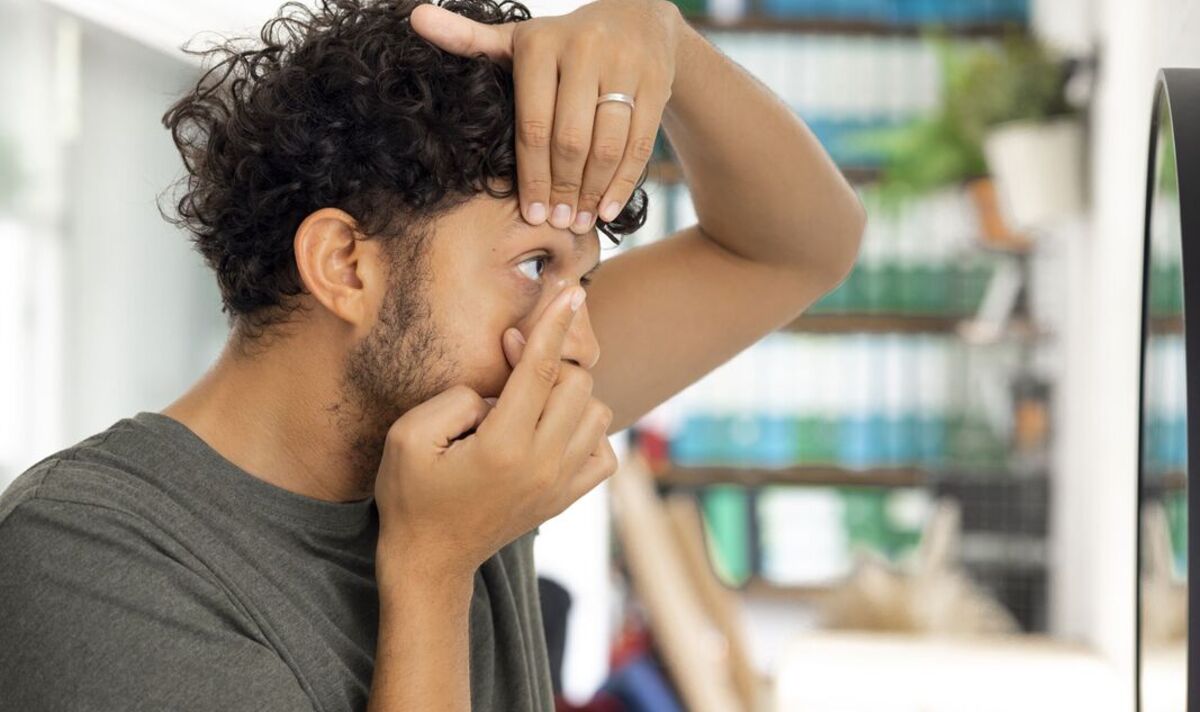Dr Amir reveals what eyes can reveal about our health
Lenses should never be worn while swimming, even in a chlorine pool, was optometrist, John Dreyer’s first bit of advice.
The eye doctor elaborated: “Chlorine can kill most germs, but not all of them, meaning that bacteria can be absorbed into your contacts and cause damage to your eye.
“This can range from mild eye irritation to eye infections, and even lead to corneal ulcers in more extreme cases.”
You may know that sunglasses shield your eyes from the sun, but don’t assume the darker the sunglasses, the better.
READ MORE… Expert warns people are missing a vital vitamin to keep eyes healthy

“Dark sunglasses that don’t block UV rays can cause more harm to your eyes than not wearing sunglasses at all,” warned Dreyer.
“The dark lenses make your pupils dilate wider, allowing more sunlight to come in than if you didn’t have glasses on.”
Dreyer recommended opting for sunglasses that are labelled as “100 percent UV protection”.
He explained: “Your eyes can burn in the sun, just like your skin.”
Don’t miss…
Doctor shares three signs of type 2 diabetes that may show up before a diagnosis[EXPERT]
Brain doctor shares five ‘tell-tale signs’ of a concussion to look out for[SYMPTOMS]
Woman taken to hospital for UTI told she only had months to live due to dementia[REAL LIFE]

We use your sign-up to provide content in ways you’ve consented to and to improve our understanding of you. This may include adverts from us and 3rd parties based on our understanding. You can unsubscribe at any time. More info
Dreyer elaborated: “Photokeratis is temporary, but painful, damage to the cornea and conjunctiva, which is the clear layer of tissue that covers the whites of your eyes.
“It’s caused when eyes are exposed to excessive sunlight and heat, and can lead to pain, headaches, light sensitivity, and even temporary loss of vision.
“The symptoms usually disappear within 48 hours, but can be minimised with proper UV protection.”
When it comes to wearing contact lenses, one thing you don’t really have to be concerned about is cooking on a barbecue.
Dreyer explained: “Contact lenses go through a disinfection process during manufacturing, called autoclaving.
“This is where they’re placed into boiling water, at a temperature of around 121°C.
“The lenses survive this process, so they wouldn’t melt while you’re cooking on a barbecue.”
The smoke from a barbecue, however, could lead to teary eyes, which increases the risk of the contact lenses falling out.
Source: Read Full Article
